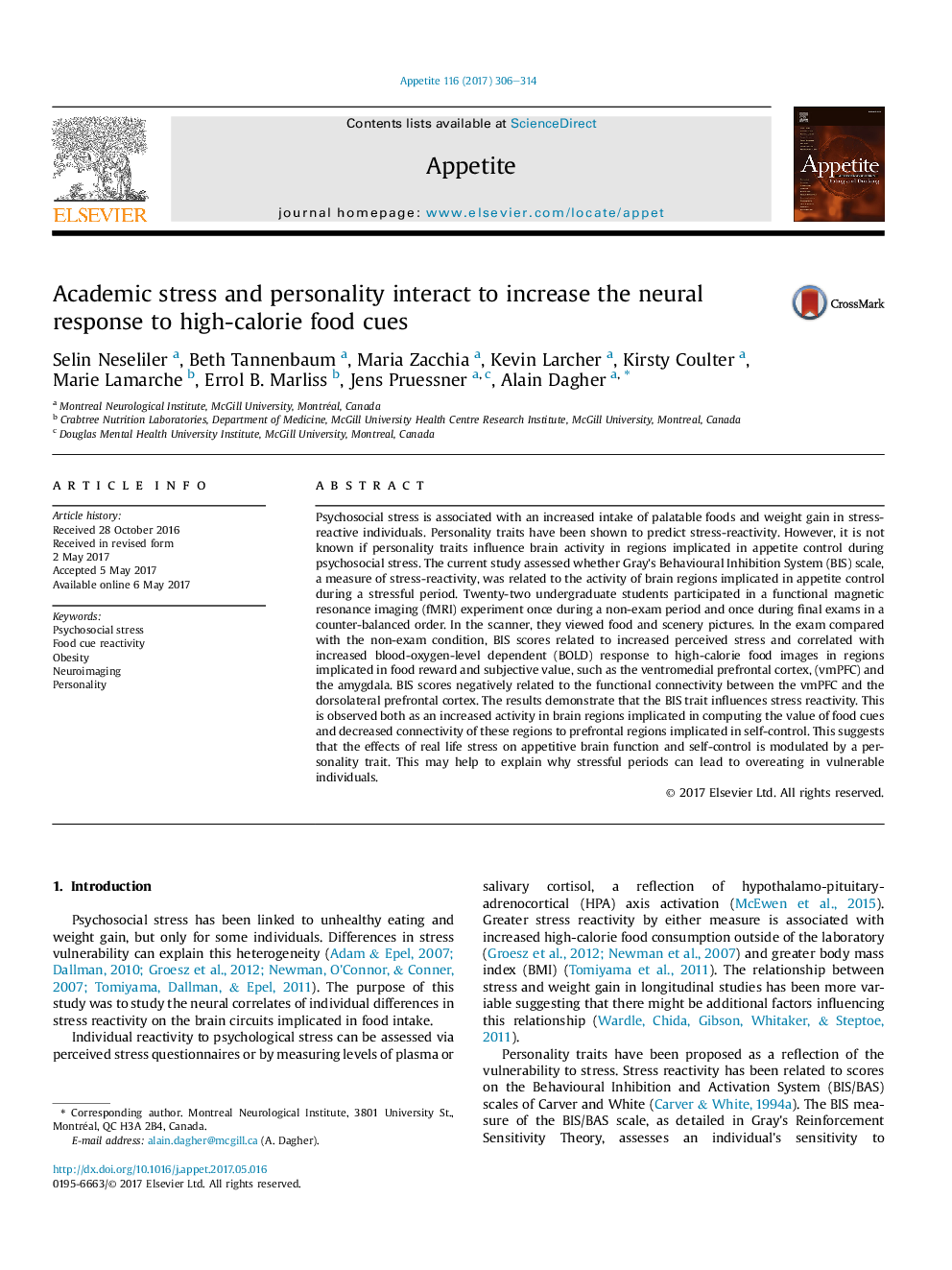| کد مقاله | کد نشریه | سال انتشار | مقاله انگلیسی | نسخه تمام متن |
|---|---|---|---|---|
| 5044011 | 1475364 | 2017 | 9 صفحه PDF | دانلود رایگان |
Psychosocial stress is associated with an increased intake of palatable foods and weight gain in stress-reactive individuals. Personality traits have been shown to predict stress-reactivity. However, it is not known if personality traits influence brain activity in regions implicated in appetite control during psychosocial stress. The current study assessed whether Gray's Behavioural Inhibition System (BIS) scale, a measure of stress-reactivity, was related to the activity of brain regions implicated in appetite control during a stressful period. Twenty-two undergraduate students participated in a functional magnetic resonance imaging (fMRI) experiment once during a non-exam period and once during final exams in a counter-balanced order. In the scanner, they viewed food and scenery pictures. In the exam compared with the non-exam condition, BIS scores related to increased perceived stress and correlated with increased blood-oxygen-level dependent (BOLD) response to high-calorie food images in regions implicated in food reward and subjective value, such as the ventromedial prefrontal cortex, (vmPFC) and the amygdala. BIS scores negatively related to the functional connectivity between the vmPFC and the dorsolateral prefrontal cortex. The results demonstrate that the BIS trait influences stress reactivity. This is observed both as an increased activity in brain regions implicated in computing the value of food cues and decreased connectivity of these regions to prefrontal regions implicated in self-control. This suggests that the effects of real life stress on appetitive brain function and self-control is modulated by a personality trait. This may help to explain why stressful periods can lead to overeating in vulnerable individuals.
Journal: Appetite - Volume 116, 1 September 2017, Pages 306-314
